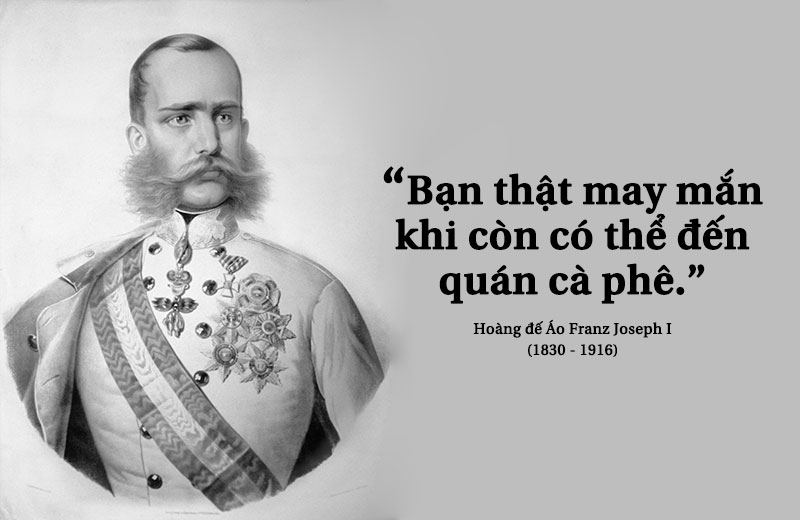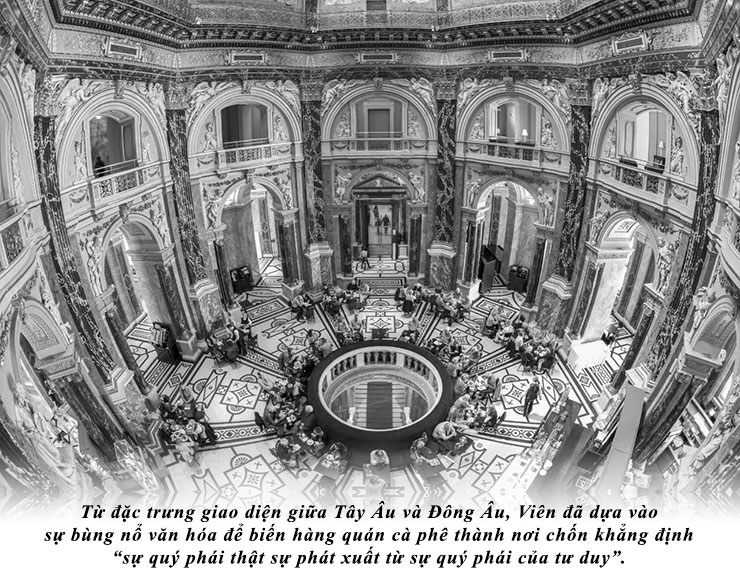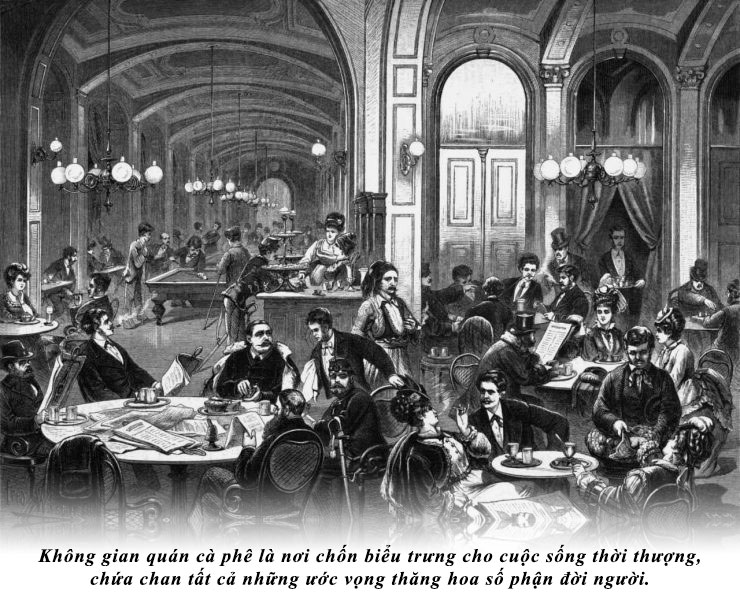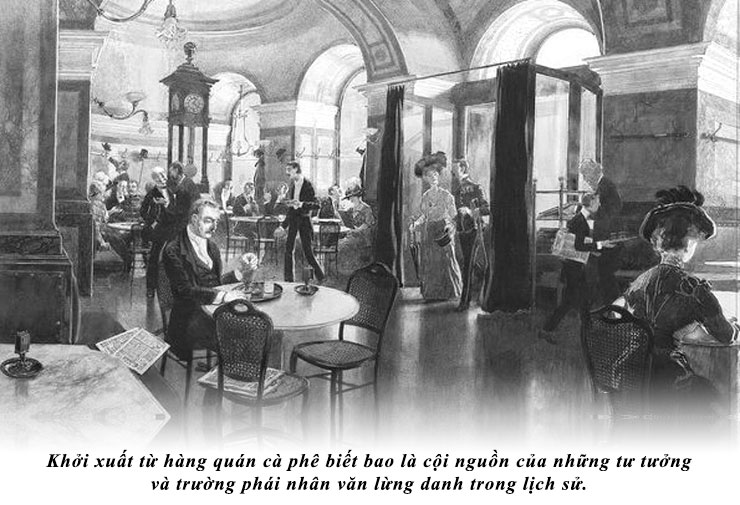Article 30: Coffee awakened humanity – Vienna Consciousness
Coffee and coffee shops have a strange compatibility in the historical flow and upward aspirations of Austria that create what is known as “Vienna Consciousness”.

“You are lucky, you can go to the coffee house.” – Franz Josepth I (1830-1916), Emperor of Austria
Vien itself is a magnificent epic. Founded in the 6th century BC, with the name “White City” (Vindobona) by the Celtes, an Indo-European tribe. Once an outpost of the Roman Empire, ruling the border between Western and Eastern Europe. In the modern era, Vienna is known as the city of music, the city of dreams and the cultural center of Europe.
The history of Viennese coffee culture was closely related to the victory to liberate the city in 1683. After breaking the siege of the Turkish empire, Vienna became a key stronghold in the process of coffee infiltration into Western Europe. The establishment of Viennese coffee and cafes was filled with these historical and geographical features.

From the typical interface between Western Europe and Eastern Europe, Vien relied on the cultural explosion to turn the coffee shop into a place that affirmed “true nobility comes from the nobility of thought”.
From the first coffee shop, Vien enthusiastically created a way to enjoy complex coffee with two unique characteristics. The first are the types of coffee that are not very strong, relatively sweet with a lot of milk and cream. The second feature is the rich variety of accompanying pastries. Therefore, Viennese coffee is often served with Viennese sweets (Viennoiseries or Viennese pastries) including no less than 30 different cakes from the most elite class, Original sacher-torte (cake mixed with cocoa cream and almonds) to the most popular one Apfelstrudel (apple strudel).
Coffee shops are an integral part of the member social fabric. With splendid decoration and polite service staff, the cafe space becomes a symbol of trendy living, worthy of aspiration. Viennese residents come to the cafe as if they have returned to their second home – where they can freely express their views, new creative ideas and can sit there for hours.
It is in that direction that the Viennese cafe space is often divided into many types. If the type of “chess coffee”, “billard coffee” is an open space, adjacent folding tables for everyone to participate in competitions; then “newspaper library coffee”, “concert coffee”, “cake coffee” are oases where each person can live with his or her own world. From here, the two main types of coffee for “Vienna Conciousness” had to be inclusive enough to accommodate all sub-types, or became separate for either of the two, often called “Vorstadt-Kaffeehaus”.

The coffee space is a place that symbolizes the trendy life, filled with all the wishes to sublimate the fate of human life.
The confluences of the “cultural boom” in Vienna since the second half of the 19th century added to the distinctive character of the cafés. Almost continuously, countless sources of thought and historically famous humanistic schools sprang from Vienna: from Sigmund Freud’s Psychoanalysis to Ludwig Wittgenstein’s philosophy of logical language; from the iconic painting of Gustav Klimt to the cutting edge lines of Egon Schiele and the discursive colors of Oskar Kokoschka; from the secessionist movement in the architectural form of Josef Maria Olbright to Adolf Loos’s break with decorative frills; from the wanderings of the world in Rainer Maria Rilke’s poetry to Peter Altenberg’s daydreaming and dreaming of the human figure of Robert Musil or Gustav Meyrinck; from retaining the old soul of Hogo Von Hofmansthal’s musical poems to nothing left in his autobiography Steafan Zweig, all have contributed to strengthening and developing the immortal characteristics of the Vienna cafe.

Starting from the coffee shop so many were the source of the famous ideas and humanistic schools in history.
Indeed, the coffee shop is a place filled with “the trace of the king of the jungle” (Vestigum Leonis). Many famous names chose a coffee shop as their “oasis”, sometimes a place to receive soulmates or even a regular place to stay. For nearly 100 years, from the middle of the second half of the 19th century to the middle of the 20th century, Vien had formed a large class of pseudo-literatures called “Caféinomane” – coffee addicts. The term is understood to mean that had there been no coffee shops and cafes, there wouldn’t have been a large number of works by these famous artists. Or it can be said, thanks to the activities at the cafe in Vienna that the concept of “Nobilitas Litteraria” – true nobility derived from the nobility of thought – has been verified, highlighting the superiority of the Vienna cafe. Because of that, Vienna cafes were famous as the place of what is called “Cultura Animi” – the culture of the soul.
THE REAL COFFEE
ROASTED ONLY FOR PEOPLE OF WISDOM!
Source: “The Philosophical Way of Coffee” – copyright by Trung Nguyen Legend


